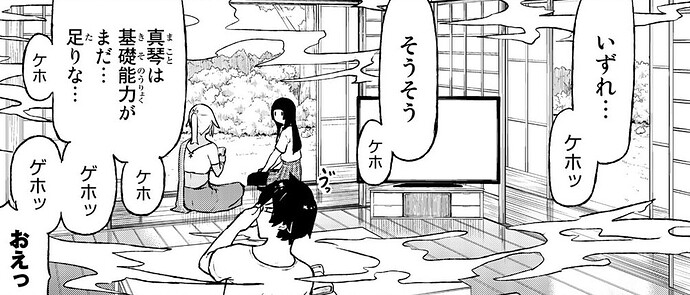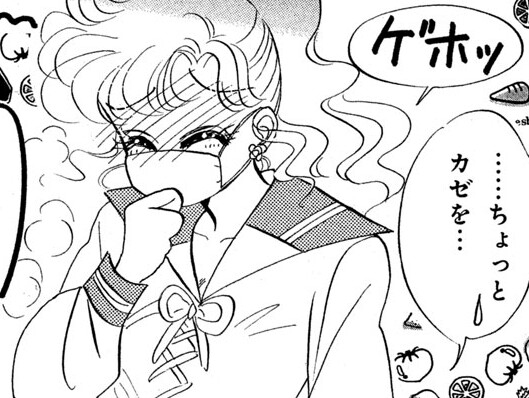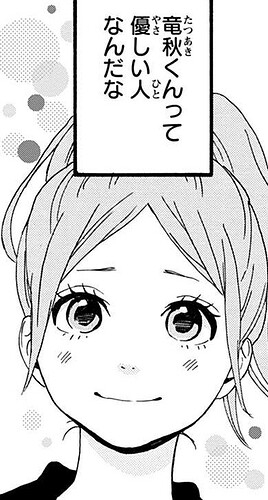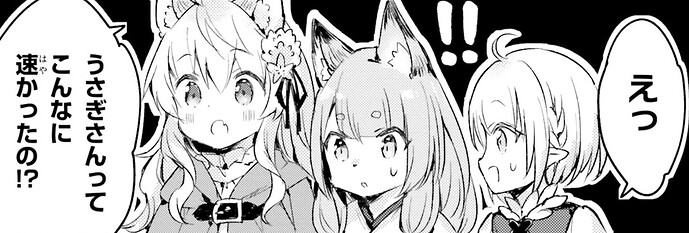Yeah ジロッ, or “stare”
I guess the absolute beginner level is still too advanced for me ![]()
I was able to understand most of page 9 with lots of lookups, but from the middle of page 10 to the middle of page 12 I don’t understand even one full sentence, even after using the vocabulary sheet. I’ll wait for more people to join this thread, and by following it, hopefully I’ll start understanding something, because at this point I feel so clueless that I don’t even know what to ask. ![]()
ジロリ.
don’t worry about it. we’ve all been there and that’s why we’re here, to help.
if you want to go a level down, ちいさな森のオオカミちゃん 1 | L16 is a perennial favourite beginner with a club attached. but honestly, to some extent, swimming in the deep end (but not too deep) is a great place to learn.
i’ll put it this way, at the beginning of this year i was reading the equivalent of see spot run, and yesterday i just finished a manga about poison murders in dynastic fantasy china. so you know. just take it a word at a time, a sentence at a time, a page at a time. consistency beats motivation any day of the week.
Thank you for all the examples!
Do you think it’s just coincidence that it looks like its て by itself after someone’s name, and then って after a sentency type quote, like from page 4 of Shikimori? 可愛くないって? I’m wondering whether there’s a rule here…
Oh for sure! ![]() I can already feel a big improvement from Horimiya to this, and these book clubs help so much with really understanding the little grammar nuances.
I can already feel a big improvement from Horimiya to this, and these book clubs help so much with really understanding the little grammar nuances.
I’m pretty sure it’s a name thing specifically, at least personally I’ve always seen this kind of thing with names.
Also, paper ninja stars.
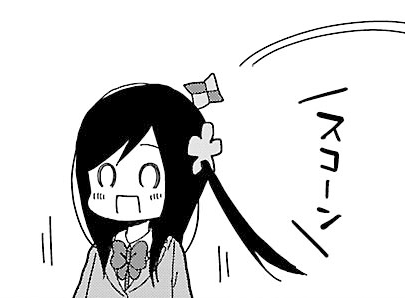
So I understand that ケホ is the sound of coughing
and モク is used to describe smoke
Correct
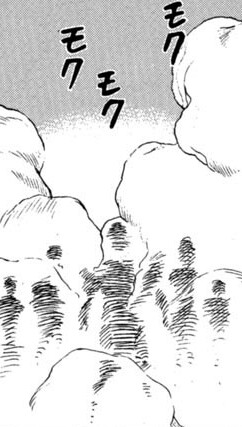
I guess the absolute beginner level is still too advanced for me
How is your grammar?
Do you think it’s just coincidence that it looks like its て by itself after someone’s name
How is your grammar?
Not good yet. I’m in the middle of my first grammar book; just studied the て form. I think I should at least finish the first book before going back to beginner manga.
Although I’m unfamiliar with that textbook, the preview pages available look comparable to other resources. I figure completing the volume will help get you to the starting line for reading, but there’s still a lot of learning to do from there!
Tips and expectations:
- If there’s anything you struggle to understand in the textbook, it’s okay to move on and come back to the more difficult parts later. Quantity is your friend at this stage and with this material, so don’t spend too much time on one thing.
- When you read native material, such as manga, expect to struggle. Expect to need to look back at your textbook and re-read about basic grammar. Expect to encounter grammar that isn’t covered in your textbook.
- When reading manga especially, the grammar is more casual than what you learn in textbooks. It’s a massive trade-off for the benefits of artwork to help with context and fewer vocabulary words compared with a novel.
Exactly - in these first contacts with native ‘living’ material, I am finding out that the problem is not the kanji (furigana everywhere and there are always resources like jisho.org to help), but the lack of grammar knowledge or the use of the language. This is what defeated me in my previous attempts with “Todoufuken no-hanashi” (I’ve come back to it, much easier now!) - I am very close to finishing the N5 path on Bunpro (some 112 items out of 126), as well as Genki I, so I guess I have at least seen the theory for most of the grammar we’ll come across here, but the biggest problem remains the correct comprehension - who says what and the nuances involved etc.
Hence, my first questions:
p. 11
Am I translating this correctly?
不幸体質の地味メン
“Just an average guy and a jinx [someone prone to misfortune].”
カワイイ彼女に迷惑かけんなよ
“Don’t be such a nuisance to your cute girlfriend!”
Actually how does the 迷惑かけんなよ work exactly? Is it a colloquial form of かける - “to cause”? なよ would be the suffixes of negative imperative and emphasis. Am I right?
p11
不幸体質の地味メン
“Just an average guy and a jinx [someone prone to misfortune].”
不幸 is unlucky
体質 here is constitution/disposition
So this put together is unlucky constitution/disposition
の is used here to specify, what kind of 地味メン he is, which means “plain guy”.
Put together, “A plain guy with an unfortunate disposition”
カワイイ彼女に迷惑かけんなよ
“Don’t be such a nuisance to your cute girlfriend!”
This is more or less correct
Actually how does the 迷惑かけんなよ work exactly? Is it a colloquial form of かける - “to cause”? なよ would be the suffixes of negative imperative and emphasis. Am I right?
It’s かけるな, but the ら column of hiragana tend to turn into a ん when slurred. Here’s a post about it
What does it mean? Is it ジロ…?
I was mostly laughing at her expression. Her glaring at them in a huge panel with more detailed art was funny, even without translating ジロ. (Tip: don’t worry too hard about translating vfx or miscellaneous handwritten text. You’ll pick them up when you read more manga)
It’s かけるな, but the ら column of hiragana tend to turn into a ん when slurred. Here’s a post about it
When I first started reading native material, this was one of those things that was difficult for me to grasp. Part of the problem was that it often involved vocabulary I hadn’t learned yet, which made it more difficult to look up the words.
The larger one’s vocabulary gets, the easier it gets to recognize these.
Here's one I encountered just the other day.

怒らないで => 怒んないで
Just to clarify again, though, this is ジロリ. Not just ジロ.
親父ギャグ: 和泉くんは、しきこもりですか?
Page 9
Panel 1
Izumi - 式守さんて全然怒らないよね
You never get angry right? (not sure if the te is short “she says” since it isn’t preceded by small -tsu, or some other function. Will check other comments here and update. UPDATE: yes, this is apparently a (less common) casual quote marker
Panel 2
Shikimori 。。。それ [ケホっ]
About that… [exasperation sound?]
Panel 3
Shikimori - 今言います?ごめん。。。
どこからか飛んできた黒板消しから、守ってくれてありがとう。。。
You’re saying this now? Sorry… thank you for protecting me when the blackboard eraser came flying out from somewhere
Background
スコーンっ (thudding sound)
危ない - watch out! (i think…literally “dangerous”)
なぜ - why?!
Panel 4
Izumi - ケガしてない?いつもゴメンね
You didn’t get hurt? I’m always sorry…
ぼくの彼女は
My girlfriend…
p9
Shikimori - 今言います?ごめん。。。
どこからか飛んできた黒板消しから、守ってくれてありがとう。。。
You’re saying this now? Sorry… thank you for protecting me when the blackboard eraser came flying out from somewhere
This one seems a bit mixed up in terms of who’s talking. The ごめん and the sentence after it are both Izumi.
Ohhhh…thank you! I was confused because i misinterpreted the image to be a guy throwing an eraser at Shikimori. Now I see that she is diving in front of him and taking the hit.
Page 10
Panel
Shikimori (blushing/gasping)
Izumi (my girlfriend is…) とても怖いい
totally cute
Panel 2
Shikimori - チョッ。。。ちょっとトイレで落としてきます!!私が戻るまで帰らないでくださいね!
Wa…wait I need to clean up in the bathroom! Please don’t go home until I return!
Izumi - あっ。。。(それた。。。)
Ah! (soreta seems to be something like “I messed that up” in this context?)
Panel 3
Izumi - 。。。待つかあ [ぽっーん]
…wait? (sound indicating surprise?)
External voice - いーずーみーくーん
I-z-u-m-iiiii
Panel 4
External voice/unknown person - 見せつけてくれんじゃねーか羨ましーぜ!!
You aren’t showing off for me are you? You made me jealous (confused about the くれん - seems like kureta (done for me) but maybe an explanatory ん?
Izumi - Whu?!
